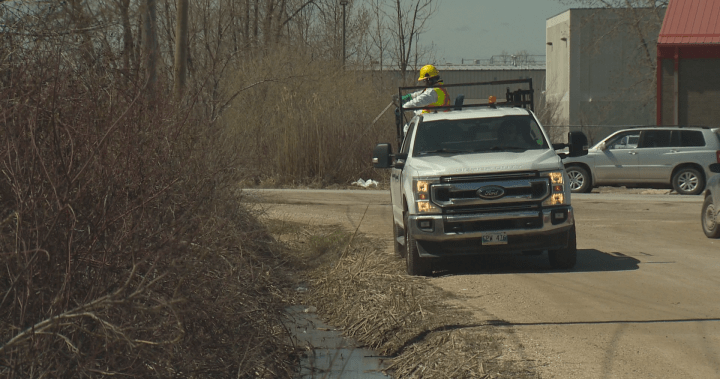City crews in Winnipeg have started their annual mosquito control efforts, aiming to reduce the pesky insects that can ruin summer for residents. Using specialized helicopters and ground crews, larvicide is applied to large areas where mosquitoes hatch, with drones being used for smaller, harder-to-reach areas. Last year’s pilot project targeting golf courses was hindered by lack of rain, but this year the city is hoping for better conditions to evaluate the effectiveness of using drones for mosquito control.
Despite low mosquito populations last year due to low precipitation and the insect control program, crews are still taking preventative measures by applying larvicide to standing water areas. The larvicide will remain on the ground until the next significant rainfall event, activating to control mosquito populations once water levels rise. Fogging, which targets adult mosquitoes, is done according to the city’s Adult Mosquito Control Policy and is determined by the Adulticiding Factor Analysis (AFA) based on factors like precipitation, mosquito life cycle, and population.
The city uses DeltaGard 20EW for fogging, replacing malathion in 2017 due to health concerns related to an aged supply of the previous pesticide. Residents can request their residence to be omitted during fogging by applying for a buffer zone through the city. Additionally, residents are encouraged to dump and drain any standing water on their properties, as mosquitoes breed and hatch in standing water. These efforts are part of the city’s ongoing commitment to controlling mosquito populations and ensuring a more enjoyable summer season for Winnipeggers.
Insect control branch superintendent David Wade emphasized the importance of starting the mosquito control measures early in the season to effectively manage the mosquito population. Despite conditions being similar to last year, the city is optimistic about the upcoming season and the effectiveness of using drones for mosquito control. The city’s efforts to control mosquitoes extend beyond larvicide and fogging, with a comprehensive approach that includes monitoring and analysis to determine the best course of action for controlling mosquito populations.
The use of drones for mosquito control in areas like golf courses demonstrates the city’s commitment to exploring innovative solutions for managing mosquito populations. With helicopter crews and ground crews targeting larger areas and drones focusing on smaller, more difficult-to-reach areas, the city is utilizing a variety of methods to ensure effective mosquito control. By applying larvicide and monitoring factors like rainfall and mosquito population, the city is taking proactive steps to reduce the impact of mosquitoes on residents and create a more enjoyable summer season in Winnipeg.













